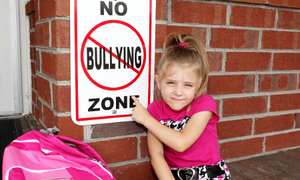Blog
This is a subtitle for your new post

All parents are trying their best to help their tamariki turn out to be kind and empathetic. But what do you do if you hear reports of your child being mean to others?
Recently, a friend was telling me about the mean girls at her daughter's kindy. Her 4 year old had come home in tears when when girl told her that she wasn’t invited to her birthday party.
My friend was hesitant to jump in quickly. But in the next few weeks, whenever my friend’s child didn’t fall in line with the other girls, similar things were said. She told her daughter to ignore the mean girls, and to play with the other children. She also had a quiet but serious word with the teachers.
Things settled down, until one day, my friend had children over to play. Imagine her horror when she heard her own daughter say to a friend, “Give me back the ball, or you won’t be invited to my party”.
So, what can you do when the bullied turns into the bully in a few short weeks?
What can you do to stop your child becoming a bully?
While we like to think that kids only start to get mean only in their teenage years, tamariki have always practiced a variation of “relational aggression”. It can start as early as kindergarten and shows up from time to time, even from the kids who you least expect it.
With mean behaviour, parents need to take hold their child’s instinct to exert dominance, and turn it into more socially acceptable behaviour. Here are our top tips for preschool and primary school age tamariki:
Teach empathy
Empathy is an extremely important part of your child’s emotional intelligence. Explain how other children feel when they are on the receiving end nasty behaviour. To really drive the point home, relate this to how your child has felt in the past when something similar has happened to them.
Set clear expectations
Impose an immediate, but reasonable consequence for any minor bullying behaviour you see from your child. For younger children, taking away iPad or playground time often does the trick.
Teach the art of a good apology
Talk to your tamariki about how they can apologise to the child that they have harmed. Help them find a way to own their mistakes and make good to that child.
Talk through the reasons that drove the bullying behaviour
In my friend’s situation, she first acknowledged the frustration her daughter felt when the other child didn’t give her ball back. She then had her daughter brainstorm other ways of dealing with the situation.
They also talked about how different ways of handling the situation would affect the other child’s feelings and how she could honour her own needs and desires without causing hurt to others. Needless to say, this was not a one-time conversation!
While the above tips will work with younger children, older kids and teenagers are another kettle of fish! Here are some pointers on how to deal with bullying behaviour in your rangitahi:
Set a good example at home
Don't gossip or share rude stories about others in your home. Model non-violent behaviour and praise your child when they show compassion for others.
Use age appropriate consequences
Older children and teenagers may need a different, more serious consequences when their teacher or friend reports bullying. E.g., take away their phone or internet access for a few days. Then your child has to earn the privilege back. The time frame needs to be long enough to have an impact but not so long that your child thinks it’s hopeless.
Monitor the situation
Notify your child’s teachers so they can keep an eye out for problematic behaviour and let you know. Follow up with teacher on a regular basis and give plenty of praise when your child is being a good friend.
Seek professional help
If your child’s bullying behaviours doesn’t stop and you end up constantly working with your child’s on social behaviour, it might be time to seek some professional support.
Our Psychology team are highly experienced in dealing with behavioural challenges in children and teenagers. Get in touch to find out how we can help your whanau.


